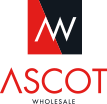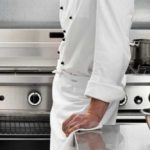

Things About Catering Equipment You Must Be Aware Of
If you're considering setting up a restaurant or catering business, then there are a number of things you need to consider with regards to the equipment you'll need. This guide gives you everything you need to know.
Purchasing
Always buy from a reputable manufacturer so that you can be assured that the appliance meets the required regulations, has good spare-parts availability, good servicing options, on-site training availability and the warranty options the company offers. If possible, opt for a parts and labour warranty so you aren't hit by massive repair costs.
Also think very carefully about buying the cheapest piece of equipment you can find. Often these are foreign imports, which could have a significant impact on sourcing repair items. The low initial price tag could be rapidly outweighed by costly repair items, higher operational and maintenance costs and lower life expectancy. And with recognised brands, spare parts are often delivered within 24 hours, whilst foreign import spares could take weeks to obtain. As such, you need to factor in the loss of earnings that will be incurred if the product is out of action.
The Appliance
The first thing to consider is whether gas or electricity is the best option. Electric appliances are often cheaper to buy but gas is the cheaper fuel. Nevertheless, many gas products now require interlocked extraction systems, which could bump up the installation costs and make electricity a better option.
When buying any catering appliance, make sure it is designed for the correct level of work. For example, don't expect a light-duty counter top appliance to withstand frequent heavy use. In addition, ensure that the appliance provides the required level of output. Most reputable manufacturers will be able to provide you with reliable and realistic output figures; however, make sure that outputs and capacities are quoted like for like. When considering appliances like griddles and fryers, check to see if the food output per hour is for fresh or frozen products.
It's also worth considering your requirements for both present needs and any future expansion. Always buy an appliance with power to spare rather than expecting it to run flat out to achieve the output you need. It's also a good idea to talk to an independent wholesaler about your catering needs, as they'll be able to give you some great impartial advice. There are plenty of wholesale catering equipment showrooms that you can visit to get an idea of the dimensions, build quality and design of the different brands. When looking, it's a good idea to consider ease of use, ease of cleaning and safety of operation.
It's worth checking if the quoted price of the appliance includes your required options. For example, there is often an extra charge to supply products on castors. Finally, it's also worth considering buying two smaller units rather than one big one, as this will give you greater flexibility and will reduce the impact of any breakdowns.


Validate your login
Login
Create New Account